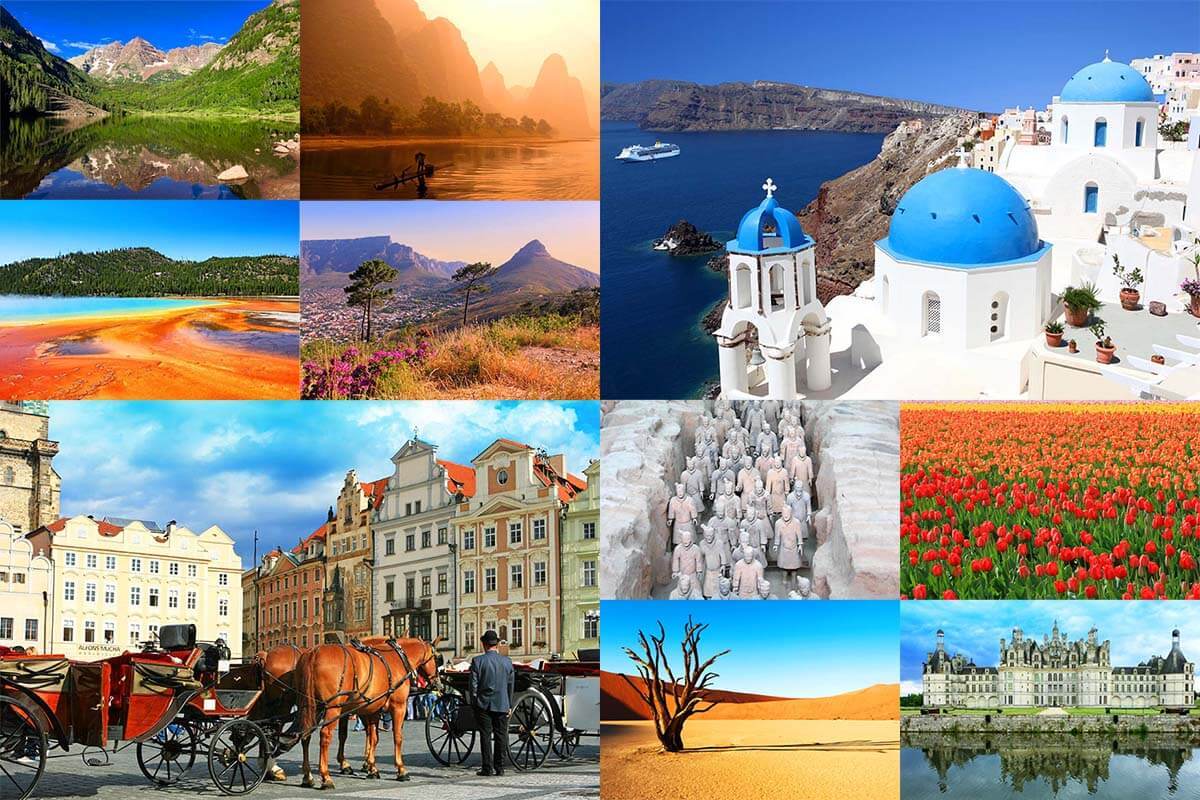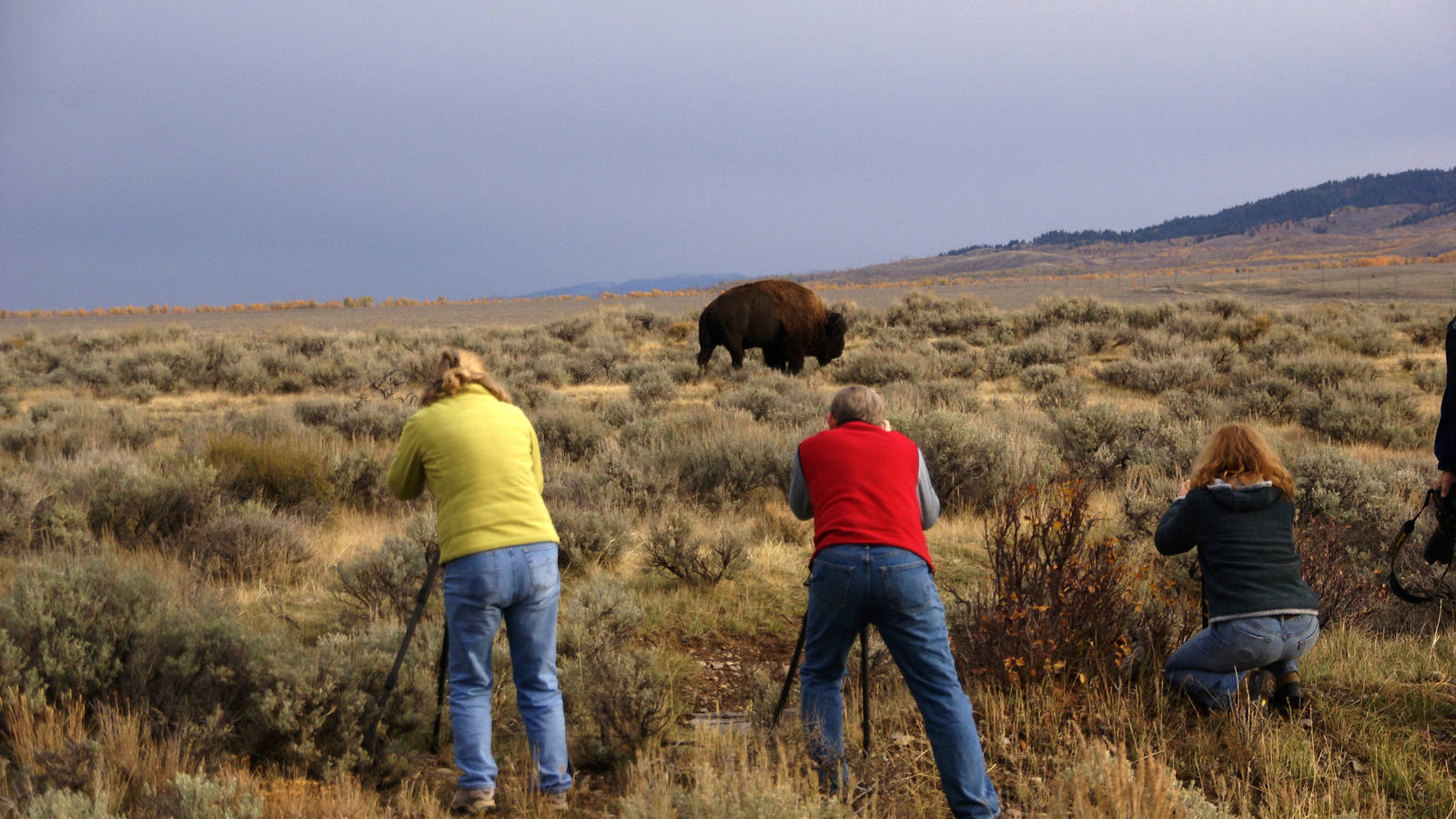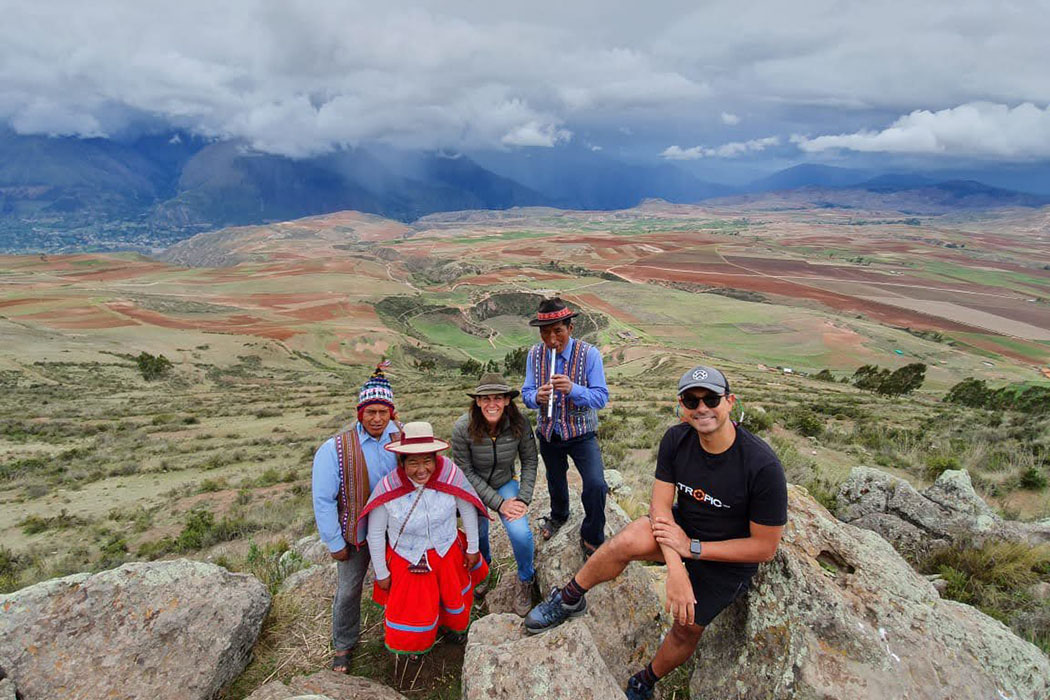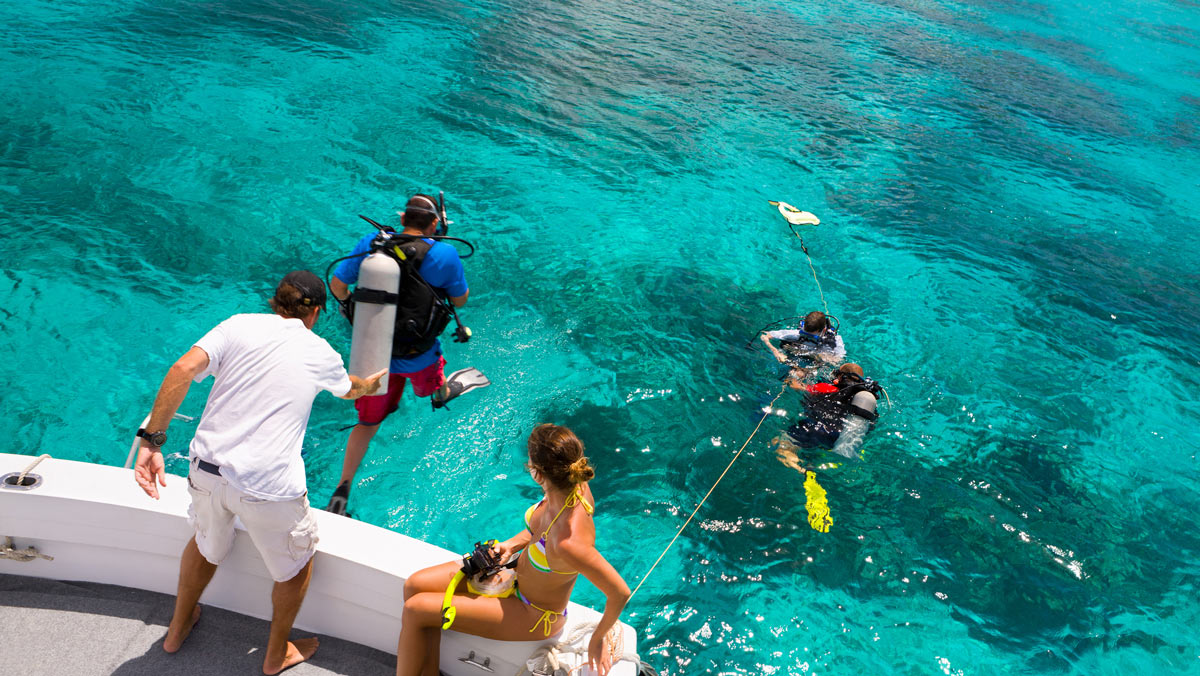Top 10 Tips for a Sustainable and Eco-Friendly Trip Across the USA
Oct 23, 2024 | By Piz za
Sustainable travel is not just a passing trend but a necessary shift in how we explore the world. With the environmental impact of tourism increasingly under scrutiny, eco-friendly travel has become a priority for conscientious travelers. The USA, with its diverse landscapes and vast natural beauty, offers ample opportunities for sustainable exploration. Here are ten tips for an eco-friendly trip across the USA, based on current sustainable travel practices and guidelines.
1. Choose Eco-Friendly Destinations
Start by selecting destinations known for their commitment to sustainability. Places like Banff National Park in Canada and Fort Myers and Sanibel in Florida are prime examples of eco-tourism destinations that offer a plethora of eco-friendly attractions and adventures (The Green Voyage; The Travel).

Additional Tip 1: Research the environmental initiatives taken by local governments or tourism boards in these areas, such as waste reduction programs or conservation efforts.
Additional Tip 2: Choose destinations that limit tourist capacity or encourage off-season travel to minimize the environmental strain on resources.
2. Make Smarter Flight Choices
Air travel is a significant contributor to carbon emissions. To reduce your carbon footprint, book direct flights when possible and pack light to lessen the plane’s load. Consider alternative modes of transportation such as trains or buses for shorter distances (Treehugger).

Additional Tip 1: Offset your flight’s carbon emissions by donating to verified carbon offset programs that support reforestation or renewable energy projects.
Additional Tip 2: Choose airlines that have sustainability certifications or that actively work to reduce their carbon footprint through eco-friendly fuel or waste management practices.
3. Responsible Accommodations
Opt for eco-friendly lodging such as certified green hotels or consider housesitting, which doesn’t affect local housing prices and allows you to stay in an already occupied residence (Voyage Green).
.webp)
Additional Tip 1: Check if the accommodation uses renewable energy sources, such as solar panels or wind power, to minimize its environmental impact.
Additional Tip 2: Choose accommodations that have effective waste management systems, such as recycling programs or composting facilities, to ensure they are reducing waste.
4. Conserve Water and Energy
Tourism heavily relies on energy and water. Be mindful of your usage by taking shorter showers, reusing towels, and turning off lights and electronics when not in use (Sustainable Travel).

Additional Tip 1: Use energy-efficient appliances or lights when possible, such as LED bulbs or low-energy charging stations for your devices.
Additional Tip 2: Stay in accommodations that promote water-saving practices, such as dual-flush toilets or low-flow showerheads.
5. Support Local Economies
Engage with the local culture and economy by purchasing from local artisans, eating at locally-owned restaurants, and using local guides. This supports the community and reduces the carbon footprint associated with importing goods.

Additional Tip 1: Opt for experiences that involve learning local crafts or traditions, supporting the preservation of cultural heritage while helping the local economy thrive.
Additional Tip 2: Avoid large international chains, which may export their profits, and instead seek out community-based tourism experiences that directly benefit the local population.
6. Respect Wildlife and Natural Habitats
When visiting natural areas, maintain a safe and respectful distance from wildlife. Avoid feeding animals or disturbing their natural habitats to preserve the ecosystem’s balance.

Additional Tip 1: Stay on marked trails to minimize environmental disturbance and prevent erosion in sensitive ecosystems.
Additional Tip 2: Avoid purchasing souvenirs made from endangered species or contributing to the illegal wildlife trade, which can severely damage biodiversity.
7. Reduce, Reuse, Recycle
Adhere to the principles of reducing waste, reusing items, and recycling whenever possible. Carry a reusable water bottle, shopping bags, and avoid single-use plastics.

Additional Tip 1: When booking your trip, choose accommodation or tour operators that commit to zero-waste policies and support local recycling programs.
Additional Tip 2: If recycling isn’t available in the areas you’re visiting, consider bringing reusable containers or packaging items to minimize the waste you leave behind.
8. Choose Sustainable Tour Operators
Look for tour operators that are members of organizations like the Global Sustainable Tourism Council, which indicates a commitment to responsible and sustainable practices (Green Global Travel).

Additional Tip 1: Ensure that the tour operator supports environmental education and includes opportunities to learn about conservation efforts during your trip.
Additional Tip 2: Choose operators that give back to the community, either through donations to local causes or initiatives aimed at protecting the local environment.
9. Practice Responsible Snorkeling and Diving
When engaging in activities like snorkeling or scuba diving, do not touch or step on coral reefs or stir up sediment, as this can damage the fragile ecosystem (Green Global Travel).

Additional Tip 1: Use reef-safe sunscreen to prevent harmful chemicals from damaging coral reefs and marine life.
Additional Tip 2: Take part in beach clean-up events or volunteer programs focused on marine conservation to contribute to the preservation of coastal environments.
10. Educate Yourself and Others
Learn about the environmental issues facing the places you visit and share your knowledge with fellow travelers. Promoting awareness is key to the longevity of sustainable travel practices.

Additional Tip 1: Join workshops or local seminars focused on sustainable tourism practices or environmental conservation to broaden your knowledge.
Additional Tip 2: Advocate for responsible travel by sharing eco-friendly tips on social media or writing reviews that highlight sustainable practices of destinations and accommodations.
Highlighted Destinations for an Eco-Friendly Trip
The United States is not just known for its bustling cities, but also for its breathtaking natural landscapes, perfect for those looking to explore sustainably. Below are some ideal locations where you can immerse yourself in nature while applying eco-friendly travel tips.
- Yellowstone National Park, Wyoming
The world’s first national park, Yellowstone is home to diverse ecosystems and stunning landscapes. It’s a prime spot for hiking, camping, and exploring hot springs, all while practicing sustainable travel principles. - Zion National Park, Utah
With its towering red cliffs and majestic trails, Zion offers incredible opportunities for hiking and camping in untouched nature, encouraging visitors to take environmentally conscious steps. - Great Smoky Mountains National Park, Tennessee and North Carolina
One of the most visited national parks in the USA, the Great Smoky Mountains allows visitors to hike through lush forests and take part in conservation activities that protect its unique ecosystem. - Denali National Park, Alaska
Denali, home to North America’s highest peak, is perfect for wildlife observation and exploring magnificent landscapes, all within a framework of sustainable tourism. - Everglades National Park, Florida
This famous wetland region is home to numerous unique species of flora and fauna. Visitors can kayak or hike through the park, minimizing environmental impact.
Conclusion
Sustainable travel in the USA is not just about enjoying the natural beauty and cultural richness of the country; it’s about doing so responsibly. By following these ten tips, travelers can minimize their environmental impact while maximizing their positive contribution to the local communities they visit. It’s a comprehensive approach that balances the joy of discovery with the imperative of preservation.
Related Blogs

India vs New Zealand: A Traveler’s Perspective on Two Unique Destinations
India vs New Zealand are two destinations that offer contrasting yet equally mesmerizing experiences. India vs New Zealand comparisons often highlight India’s centuries-old traditions, bustling bazaars, and architectural marvels versus New Zealand’s breathtaking natural landscapes and adrenaline-pumping adventures. Whether you’re a culture enthusiast, nature lover, or thrill-seeker, this guide will help you explore the best […]

Barbastro Barcelona: A Journey Through Spain’s Hidden Gems
Spain is a treasure trove of culture, history, and breathtaking landscapes. Two destinations that encapsulate the country’s charm are Barbastro Barcelona. While Barcelona is renowned for its vibrant city life and iconic architecture, Barbastro offers a quieter, more traditional Spanish experience nestled in the heart of the Somontano wine region. Together, they create the perfect […]

The Complete Guide to the Carry On Cast: Past, Present, and Future
The Carry On films stand as a cornerstone of British cinema, delivering decades of laughter and unforgettable characters. This iconic comedy franchise, spanning over 30 years, combined slapstick humor, clever wordplay, and a talented ensemble cast that became household names. This guide explores the history of the Carry On cast, their contributions to the franchise, […]

Exploring Austria’s Iconic Opera Houses
Austria, a nation steeped in a rich cultural heritage, stands as a beacon of classical music and artistic excellence. Among its most revered cultural institutions are its opera houses, which serve as both architectural marvels and stages for world-class performances. This report delves into the history, architecture, notable performances, and cultural significance of Austria’s iconic […]

Exploring the Distinctive Andean Music of Bolivia
The Andean music of Bolivia is a vibrant and integral part of the country’s cultural tapestry, deeply rooted in the traditions and spiritual practices of the Andean peoples. This genre of music is not only a form of artistic expression but also a medium through which the stories, legends, and historical narratives of the Aymara […]

Learning About the Carnival Culture in Rio de Janeiro, Brazil
The Rio de Janeiro Carnival, often heralded as the world’s largest and most famous carnival celebration, is a vibrant showcase of Brazilian culture, history, and community spirit. This annual event, which draws millions of participants and spectators from around the globe, is a testament to Brazil’s rich cultural heritage and its capacity for joyous celebration. […]

Mastering Mozzarella: A Taste of Italy
Mozzarella, a semi-soft cheese originating from Italy, is cherished for its creamy texture and mild flavor. Traditionally crafted from buffalo milk, it also finds a popular variant made from cow’s milk. This cheese is not just a culinary staple but a cultural icon, deeply embedded in Italian society and cuisine. Its high moisture content contributes […]

Discovering the Art of Calligraphy in South Korea
Korean calligraphy, known as “Seoye” (서예), stands as a testament to the rich cultural heritage and artistic expression of Korea. This ancient art form, which involves the artistic writing of both Hanja (Chinese logographs) and Hangul (the Korean native alphabet), transcends mere communication to become a profound medium of aesthetic and spiritual expression. As we […]

Scotland’s Tartan: A History of Highland Dress
Tartan, with its vibrant patterns and historical richness, is one of Scotland’s most iconic symbols. It is inextricably linked to the kilt and the national dress of Scotland, embodying both cultural heritage and identity. This detailed report delves into the origins, evolution, and cultural significance of tartan and Highland dress, exploring how this textile has […]

Tribal Arts of Papua New Guinea: A Unique Heritage
Papua New Guinea (PNG) is a nation marked by its remarkable cultural diversity, with over 800 distinct tribes, each possessing its own language and customs. This diversity is vividly expressed through the tribal arts, which are not only a testament to the rich heritage of the indigenous people but also serve as a living tapestry […]

